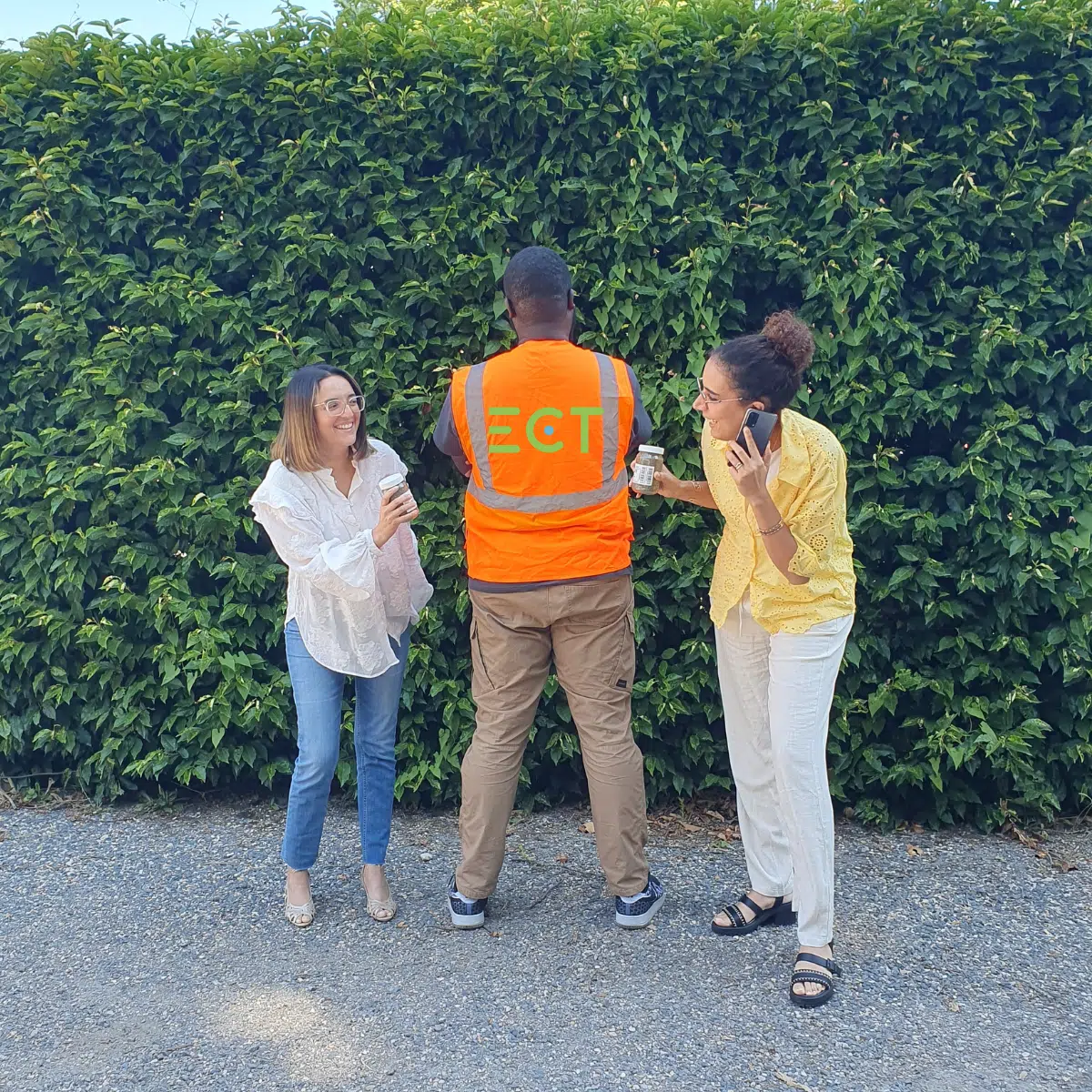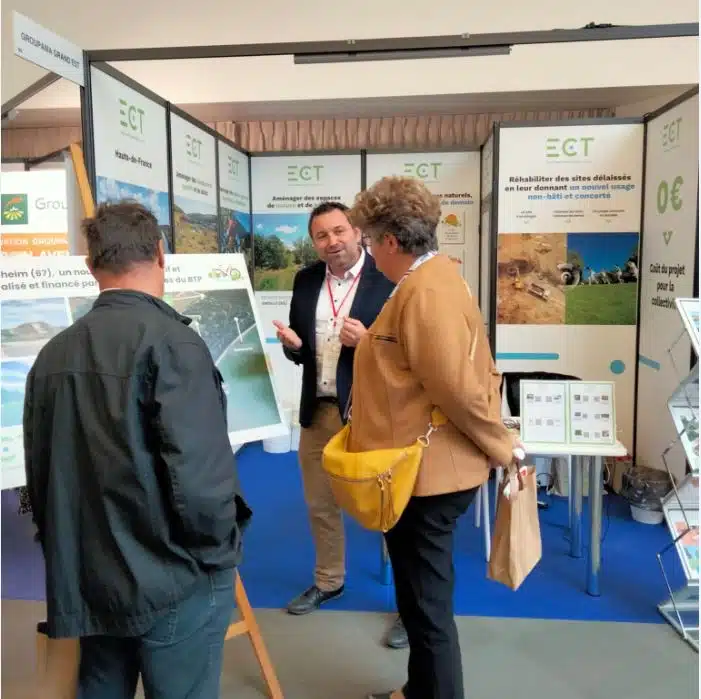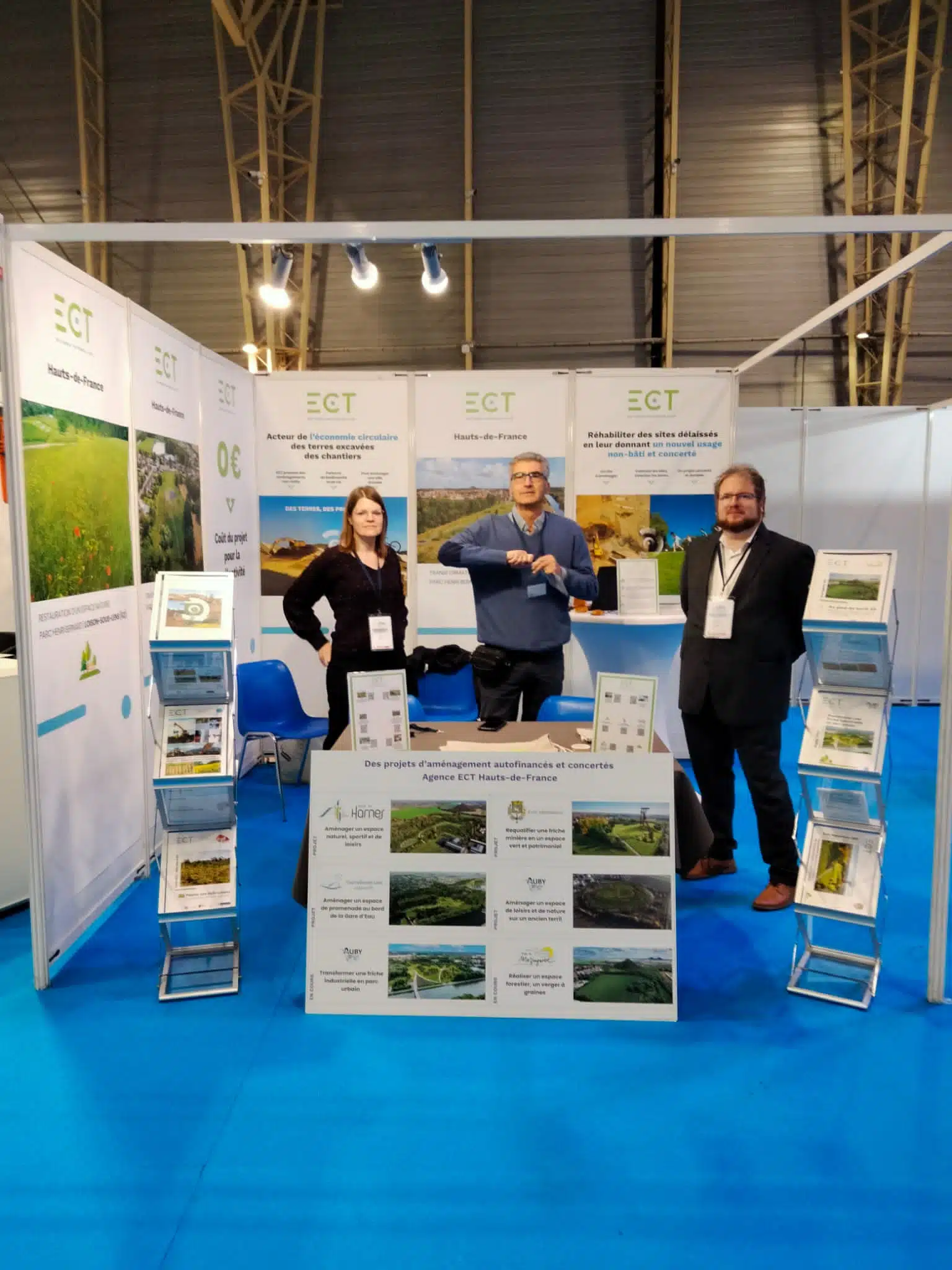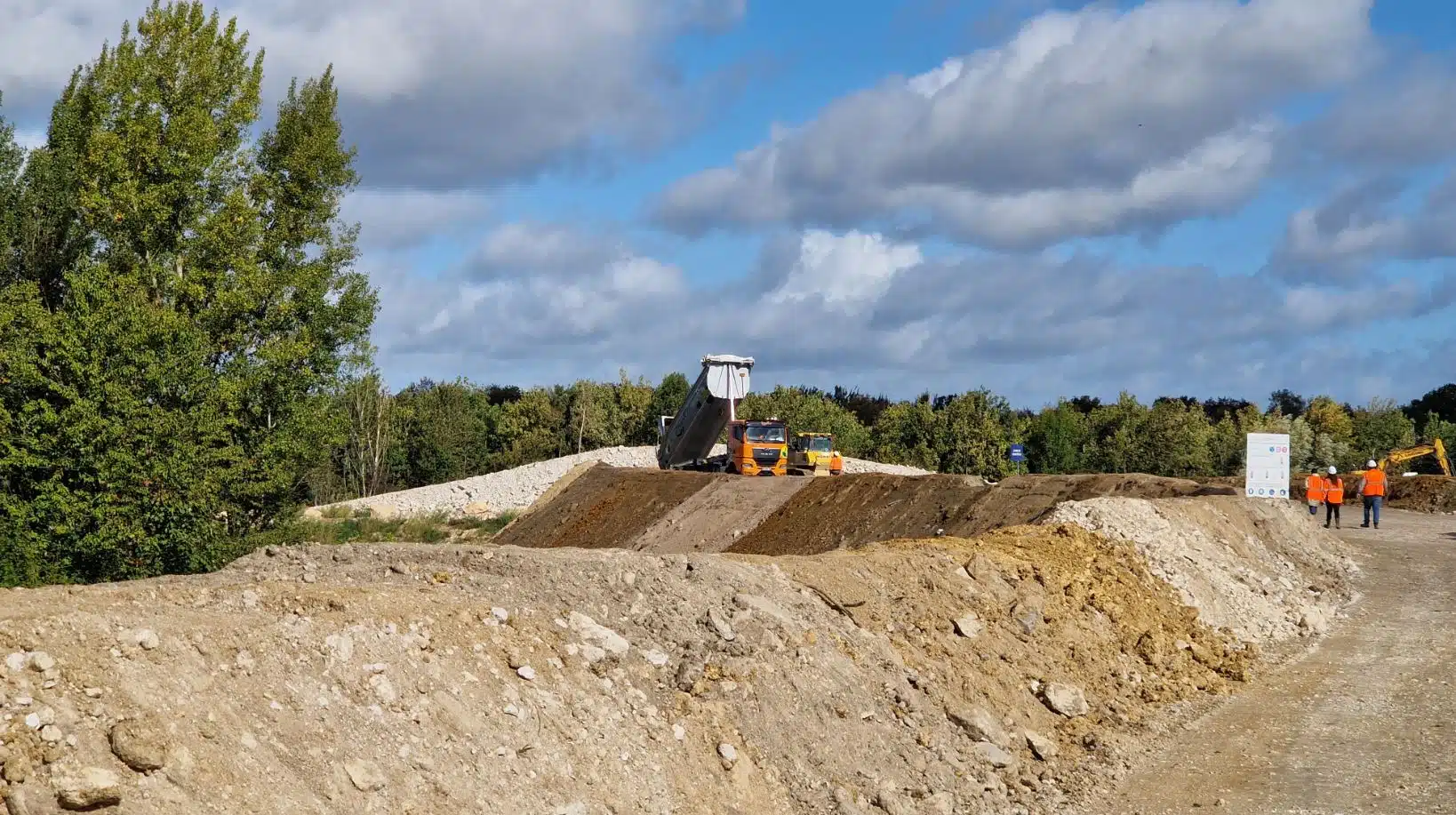Within ECT’s Environment Department, the Business Analysts (CAF) occupy a strategic position. They are at the crossroads of environmental engineering, the application of excavated soil regulations and customer relations. Their mission: to support construction and public works companies in the anticipation, management, traceability and recovery of their excavated soil.
Meet Mouhamadou Niang, Chaimae Sehbaoui and Ouarda Chihaoui, three professionals with complementary backgrounds, all committed to offering tailor-made solutions to our customers.
A bridge between design and site reality
Project managers oversee the management of our customers’ excavated soil, from the site soil survey phase through to soil disposal. Their role is to act as the interface between customer sites and outlets, particularly with regard to the tracking and traceability of materials, in line with the final development project. Their mission is to validate the characterization of inert or polluted soil, the quality of the 3D mesh plan and the proper disposal of soil. The stakes are high: compliance with regulations, smooth disposal logistics and, ultimately, customer satisfaction. “Every job is unique, and so is every customer. And so is every customer,” says Mouhamadou.
It all starts with a customer’s request for soil management during an excavation project, forwarded to our sales team. ECT’s design department then carries out an initial technical analysis: excavated volumes to be removed, site layout, quality of soil (inert or polluted) and cost of receiving the soil on our sites. Once the study is finalized, our project managers take over to validate operational feasibility with the customer. “Our job is to act as a bridge between studies, worksites and customers,” confirms Ouarda. Regular discussions are held with the customer to adapt to the project, adjust the technical data, in particular the mesh size, and define the evacuation schedule.
Once the estimate for site soil management has been signed, we continue to support the customer. ECT’s service offering is turnkey, with project managers managing :
- Assisting the customer in drawing up the Declaration of Preliminary Acceptance (DAP)
- Coordinating the various treatment channels (inert and non-inert)
- Organizing transport, at the customer’s request
- Booking towers for inert soil at ECT reception sites
- Making an ECT environmental technician available on the customer’s site
- Setting up or checking the site grid plan
- Monitoring earthworks, detecting any quality problems during soil extraction
- Keeping a site log
As Chaimae sums up: “Our role is to orchestrate all stages of excavated soil management on site, with rigor and responsiveness, to optimize the success of our customers’ projects”.
Develop a relationship of trust with our customers
The role of our account managers doesn’t end when the quotation is signed. During the worksite, they remain available and responsive local contacts. “Being present is essential. We’re there to take stock, answer questions and avoid bottlenecks that could delay the project,” emphasizes Chaimae.
Any delay can mean lost time, and therefore additional costs for the customer. Their mission is to prevent hazards. To do this, they anticipate constraints and secure each stage of the project. As Ouarda explains, “We take a step back to provide reassurance. The customer expects us to provide clear, reliable and rapid answers. This relationship of trust is built over time, thanks to close coordination between in-house and field teams.
Business managers also play an advisory and support role. “We work alongside our customers, whether they’re earthworkers, hauliers or brokers, during calls for tender. We can accompany them to town hall meetings or meetings with their developer clients,” adds Ouarda. “Our presence reassures them that the soil is traceable, that regulations are respected, and that ECT’s operations are reliable.
"Expertise, listening and integrity"
With cheerfulness and good humor, the business managers recount a daily routine in which no two days are alike. As Mouhamadou sums up, “The days follow one another, but they’re never the same! This diversity is what makes the job so rich. Following the course of a project, from the first studies to the final evacuations. Keeping in touch with customers and going out into the field is what makes the job so stimulating. To do this, you need solid technical skills, a great deal of rigor and experience of digging and earthmoving sites.
“In addition to technical expertise, you also have to be a good listener, keep your cool and always act with integrity,” adds Ouarda. The real strength of a project manager lies in combining technical expertise with interpersonal skills, to create a lasting relationship of trust with all project stakeholders.
Innovating with the Grand Paris Express construction site
“We were all hired in 2018, to help manage the Grand Paris Express construction site at ECT,” Mouhamadou remarks. This extraordinary project marked the beginning of their professional adventure at ECT. “It’s a huge site, never seen before!”
The highly demanding pace of the digging required very precise management, to meet every clause of the contracts. “In some areas, we had to reinvent ourselves. We had to create new processes, and improve the efficiency of our tools and working methods,” recalls Ouarda. “It gave our job a new meaning”, concludes Chaimae.
At the heart of the circular economy for excavated soil
All three have training in civil engineering, the environment or regional planning. Chaimae, Ouarda and Mouhamadou began their careers in construction and public works. For Mouhamadou: “Before, my job was to dig and excavate volumes for all types of infrastructure. I never thought about where the land was going. An assignment with ECT was the turning point. “As a service provider, I discovered the ‘post-construction’ world. A world of reasoned land management, traceability and reuse for development projects”. It’s this awareness that has shaped his vision of the profession today.
Ouarda already had this sensitivity. “It was a subject that was important to me. I wanted to join a company that was committed to these issues. After several assignments as a service provider for a design office, she decided to join ECT on a permanent contract.
As for Chaimae, it all began with an internship at ECT. She gradually progressed from research assistant to project manager.
Today, all three are convinced that excavated soil is a resource and that the environment is an integral part of their core business: “We work together, with the same desire: to meet our customers’ needs as effectively as possible, while at the same time contributing to sustainable regional development”.



